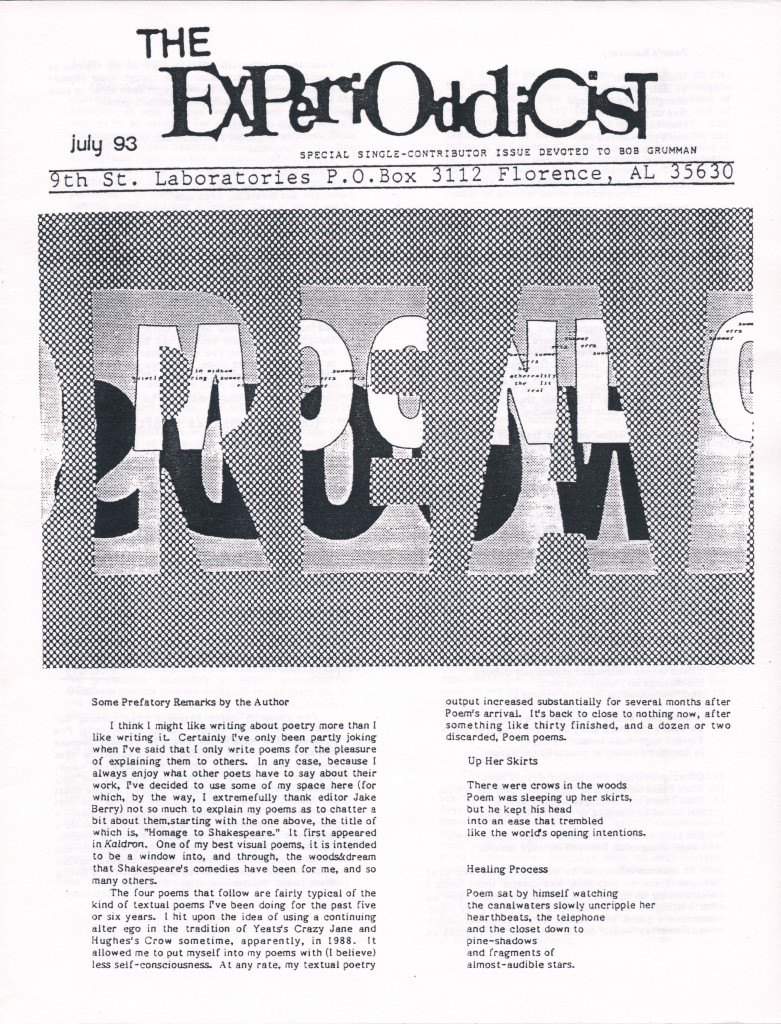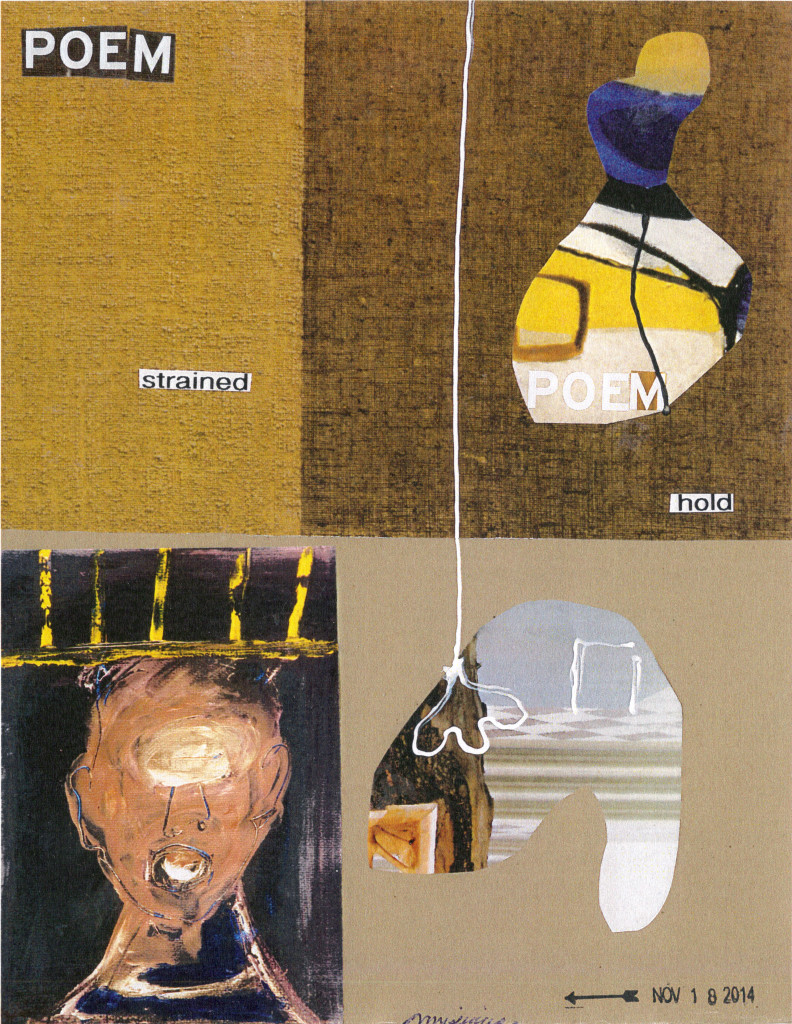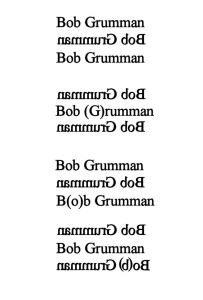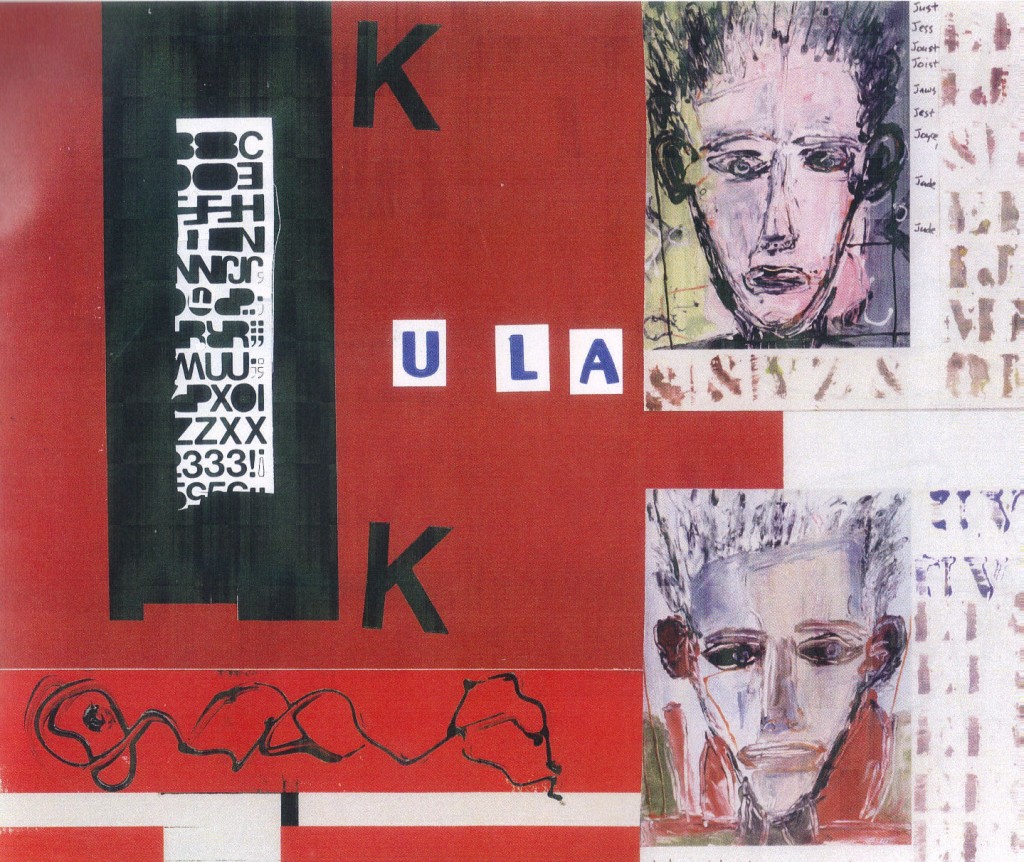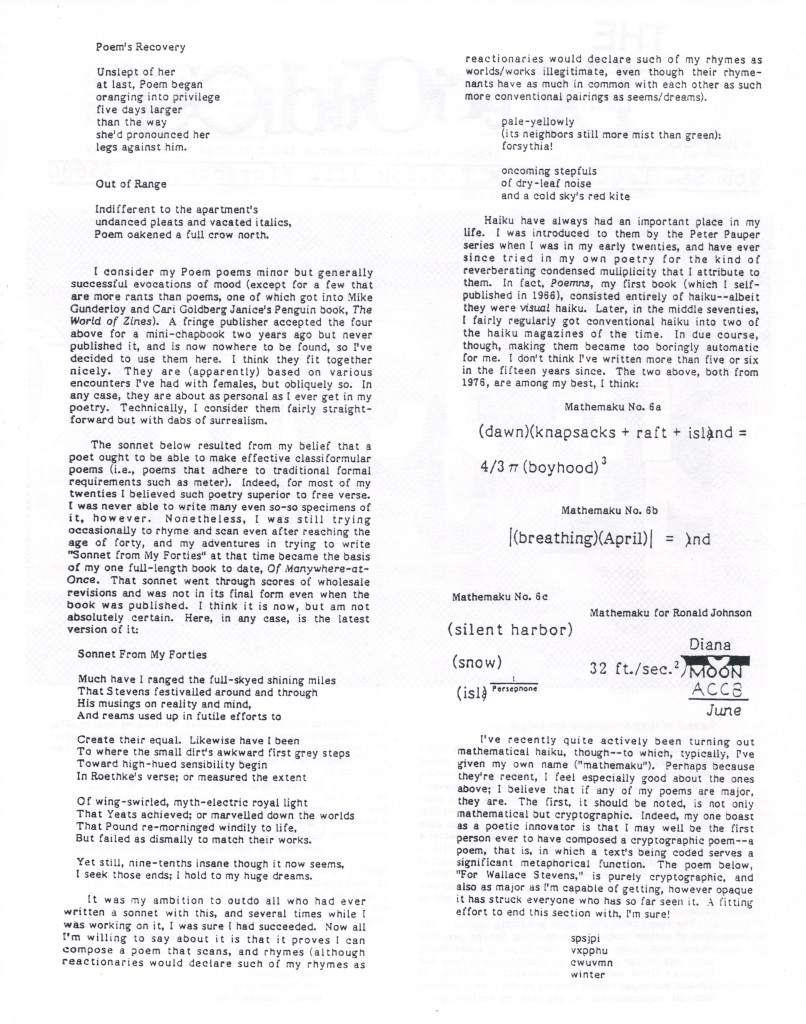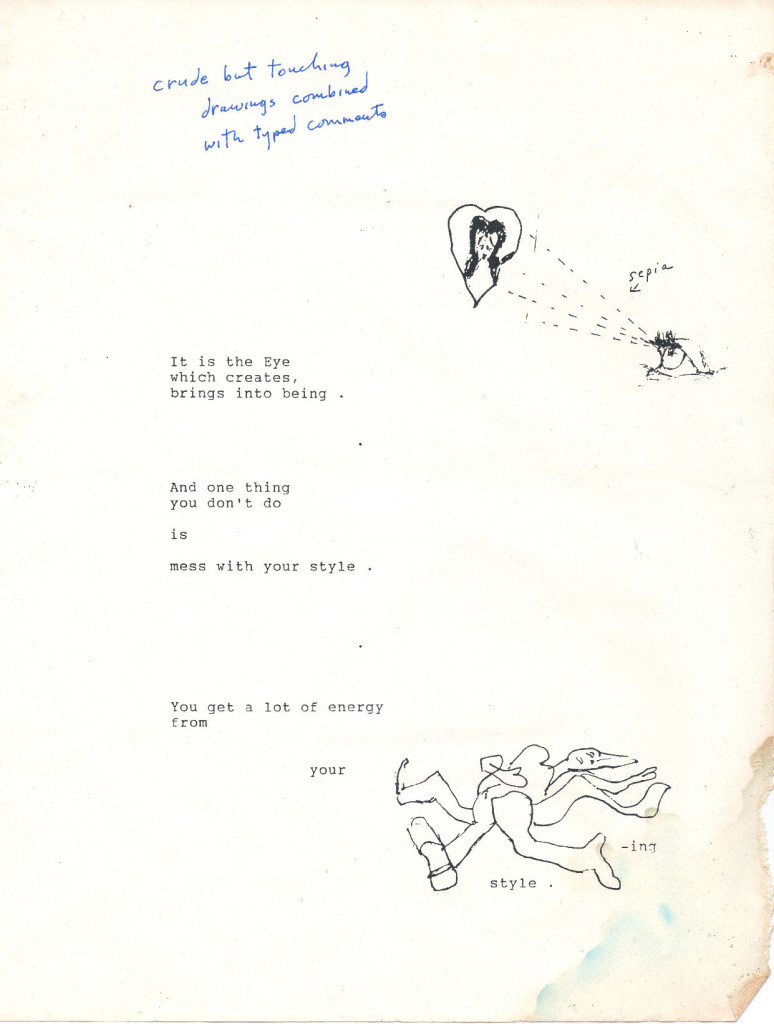Here’s my sonnet, again, back for further dissection
Much have I ranged the lolli-skied deep art
that Stevens somehow miracled around
his meditations into seem and are,
and each time burned eventually to found
a like domain. I’ve often ventured, too,
to where the weather’s smallest pieces, earth,
and earthlife synapsed in the underhue
of Roethke’s thought and felt no less an urge
to master his techniques, as well. And I’ve
explored the fading fragments of the past
that Pound re-morninged windily alive,
sure I would one day follow on his path.How vain they’ve been, how vain my fantasies:
their only yield so far just lines like these.
The first question of the day is whether or not the “mis-used” words are virtues or defects. They are “miracled” and “synapsed,” two nouns used as verbs. The noun-to-verb change happens all the time in English, yet there seem still to be people peopling the outskirts of provincialism whom it dismays. Of course, when one comes on a noun that’s been used as a verb for the first time in the one’s experience, it is bound to seem slightly wrong. In a poem, though, no one should object to this practice if the object is freshness. Which it almost always is in my poems. Still, one can over-do it. Whether I have with these two, and with the later “re-morninged,” which is both a noun used as a verb and a word given an unexpected prefix. “Re-morninged” may be strained, but I like it (and used it in all my versions of this poem) because it is also a metaphor for the particular way Pound brought the past “to life again.”
Then there are my coinages, “lolli-skied,” which I’ve already discussed, and “underhue,” which may well not be a coinage. If a coinage, it uses “under” as a prefix the same way Wordsworth did, so I consider it a plus. (If I were an academic, I’d quote the passages where Wordsworth used it, but I’m not–’cause I got more important things to do.) Again, whether these are plusses or minuses is a to each his own proposition.
I’m not sure what “seem” and “are” are the way they are used here. Verbs as nouns, I guess–“seem” meaning “things as they seem,” “are,” “things as they are.” So, verbs as noun preceded by ellipses? In any case, they are appropriate here for indicating one constant theme of Stevens’s poetry, usually specifically with the difference between reality and our metaphors for it. On the other hand, “are” is inserted for the rhyme. It should be evident by the fourth line that I could have used fewer words, and sometimes shorter words, to say what I have, but didn’t because I had to have so many syllables per line, and get the meter right. The fourth line should be just “burned to found.” And “found” seems a bit of a strained effort to make a rhyme. Poets don’t “found” poetic worlds so much as “fashion,” “create,” or “form” them. Sometimes such a not-quite right word works beautifully, though–I’m thinking of Blake when he asked “who could frame” the “fearful symmetry of the tyger.
I remember, too, never liking the way “to” followed “too,” but I couldn’t think how elsewise to write that part. Lines 6 and 7 are downright bad due to the padding I’m speaking of “to where the weather’s smallest pieces, earth,/ and earthlife synapsed in the underhue . . .” This ultimately became, “to where the small dirt’s awkward first grey steps/ toward high-hued sensibility begin . . .” which is superior (I believe) though not perfect because all four of the adjectives in first of the two lines adds something to the picture the dirt in spring using seeds to ascend to color (and “sensibility,” which I won’t defend here). Does such padding kill a poem? Not unless overdone, in formal verse, where I believe padding nearly always happens–but pays off in the best poems with in a smooth rhythm and rhyme (and rhyme is a wonderful thing, so what if great poems can eschew it). Does padding kill this poem? I frankly don’t know. Certainly “the fading fragments of the past,” wounds it, not only as padding but as cliche–i.e., fragments of the past are pretty sure to be “fading.”
I don’t remember if the version of this sonnet I consider the final one still “has “windily” in it. I wanted to refer to the brisk weather I thought rule many of Pound’s best poems, but “windily,” alas, also suggests the windy speaker that he too often was.
Finally, there’s the repetition of “How vain they’ve been,” which I confess was due to the need to fill out the line–although one can argue that it helps emphasize the strong feeling of the couplet it’s in. As I’ve said before, however, when I read this poem after not having read it for probably more than ten years, I did like it, not noticing the problems I’ve now found in it. I’m convinced it’s not a mjor poem, but it may not be a bad one.
Incidentally, I’ve not yet mentioned the poem’s subject. It is a simple, conventional one: the desire of a poet to write great poetry–with explicit praise to the side of three poets, and implicit praise of a fourth (Keats). I claim that no poem’s subject is important, unless it’s unclear or ridiculously stupid (e.g, raw toads taste better spread with peanut butter). It’s how the subject is treated that counts. What kind of monument to it does the poem’s words create? Most import for me has always been how well it gets an engagent to Manywhere-at-Once (which is where an effective metaphor takes you, but not only metaphors), how often, how deeply, and how richly. Oh, and archetypal depth is crucial for the best poems. This one has to do with its speaker’s needs for greatness, and that’s are archetypally significant as any subject can be.
I never bothered to mention my poems “melodation,” either. That’s what I call the many ways poems can give auditory pleasure: rhyme, alliteration, assonance, consonance, euphony, even cacophony in the right place; and meter. I claim that even poor poems usually have effective melodation. There’s always the danger of too much of one kind–alliteration, most commonly; and of cliche–in choice of rhymenants (which is what I call words that rhyme), for example, “love/above.” My sonnet avoids cliched rhyming through the use of my bow-rhymes, and I don’t think any of my melodations is overdone. Most of them, by the way, came naturally. I think few people who have composed enough poems think about melodation while making a poem: it just comes. Every once in a while, you may have to think about it when not sure which of two or more words is right for a line–usually one will make the best sense but not sound as well as a second.
Did anyone notice how I ran out of gas toward the end of the above. For a while yesterday I really thought this would turn into a Terrific Example of New Criticism at its Best. Oh, well, I don’t yet think it’s wretched.
.
